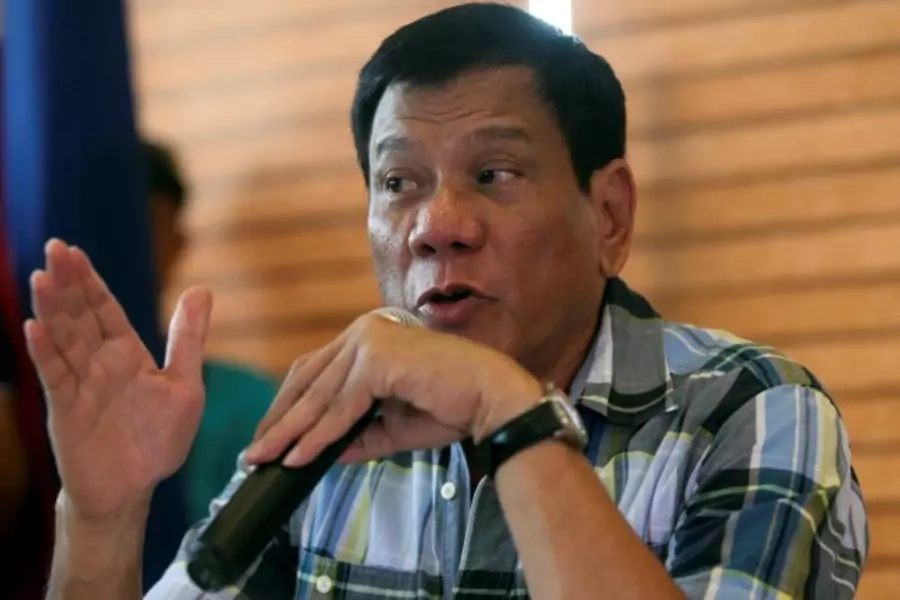Richard Javad Heydarian is an assistant professor in political science at De La Salle University in Manila. His latest book is "Asia’s New Battlefield: The US, China, and the Struggle for Western Pacific."
The Philippines’ new president, former Davao mayor Rodrigo Duterte, won last week in a five-way vote. His tough-talking style, effective social media campaign, and vows to reduce the power of the country’s elite and crack down on crime resonated enough to deliver him the win. Promises to give political autonomy and fiscal resources to peripheral regions also helped with many voters, especially in the central and southern Philippines. Overall, Duterte captured a large plurality (38.5 percent) of votes cast, with much of his support from Manila and its outskirts, Cebu (his paternal homeland), and the island of Mindanao, where Davao is the largest city. In a single-round, first-past-the-post system, where reformist voters were split between Senator Grace Poe and former Interior Minister Mar Roxas, this was enough to give Duterte a clear victory. But who is Duterte?
More on:
His critics have compared him to Donald Trump, while supporters describe him as the Lee Kuan Yew of the Philippines. But neither comparison holds much water. Unlike the real estate mogul from New York, Duterte boasts more than two decades of actual political experience. He is widely credited for transforming, albeit with an iron fist, the Hobbesian city of Davao into a (supposedly) ‘Switzerland of Mindanao’.
Yet, Duterte is also no Lee Kuan Yew. The late Singaporean leader, a Cambridge-trained lawyer, was polished and sophisticated, both an effective domestic leader and a diplomat and statesman. Although Lee Kuan Yew could be blunt when discussing Singaporean politics, he was skilled in working with neighbors and major foreign powers like Japan and the United States. In addition, Lee Kuan Yew managed a city-state a tiny fraction of the size of the Philippines.
Duterte, in contrast, is known for his intemperate outbursts, which have already scared some investors and worried some of the Philippines’ foreign partners. During the campaign, he vowed to form a “revolutionary government” if he could not pass legislation he wanted, and just in the past week he has promised to be a “dictator” against crime and to bring back the death penalty to be used against a wide range of criminals. In fact, Duterte vowed to hang criminals twice. He also will have to govern a nation of hundred million people and navigate difficult rural-urban dynamics and entrenched socioeconomic inequalities. As a result, Indian Prime Minister Narendra Modi could serve as a better comparison for Duterte, in terms of the challenges Duterte faces and the bulldozer style Duterte employs. Like Modi, Duterte will face both enormous challenges and the difficulty of balancing expectations he created among his supporters with the reality that combating entrenched interests will take significant time. Indeed, Duterte faces the difficult balancing act of reassuring investors, civil society leaders worried about some of his promises on crime and international partners, on one hand, and continuing with the tough talk and rapid action that has attracted his supporters.
A look at his potential presidential cabinet, which is set to be filled by a ‘team of rivals’ of communists, technocrats and military men, reflects Duterte’s desire to signal simultaneous continuity as well as radical change in both the domestic and international realms. Domestically, he is expected to focus on infrastructure development, suppression of crime, and effective tax collection, while maintaining many of the Aquino administration’s macroeconomic policies, which helped deliver six years of strong growth. Externally, he is expected to transform the Philippines’ foreign policy into one less reliant on ties with the United States and more willing to balance between Washington and Beijing.
For Duterte, a realist at heart, safety and development come first. By launching a comprehensive anticrime initiative, he hopes to create the basic security that would undergird long-term development. On multiple occasions, he also has telegraphed his willingness to launch direct dialogue with China, explore joint development agreements in the South China Sea, and invite large-scale Chinese infrastructure investments in the country. He apparently hopes that Manila and Beijing can settle their disputes over the South China Sea amicably, and that Chinese companies are interested in heavily investing in the Philippines.
More on:
The biggest challenge for Duterte, however, is the lingering fear among many Filipinos that he is a dictator-in-the-making. No less than the outgoing president, Benigno Aquino, has made such accusation. Human rights groups, members of the security establishment, as well as the Catholic Church have also been alarmed by Duterte’s rhetoric and track record in Davao. Thus, the moment Duterte tries to dramatically reconfigure the country’s institutional checks and balances, it is reasonable to expect a huge political backlash and a concerted pushback by his legions of supporters.
For now, however, there is cautious optimism that Duterte’s more pragmatic dimension will prevail. Without a doubt, the Philippines has entered a new period of uncertainty, filled with high hopes and deep fears.
 Online Store
Online Store
